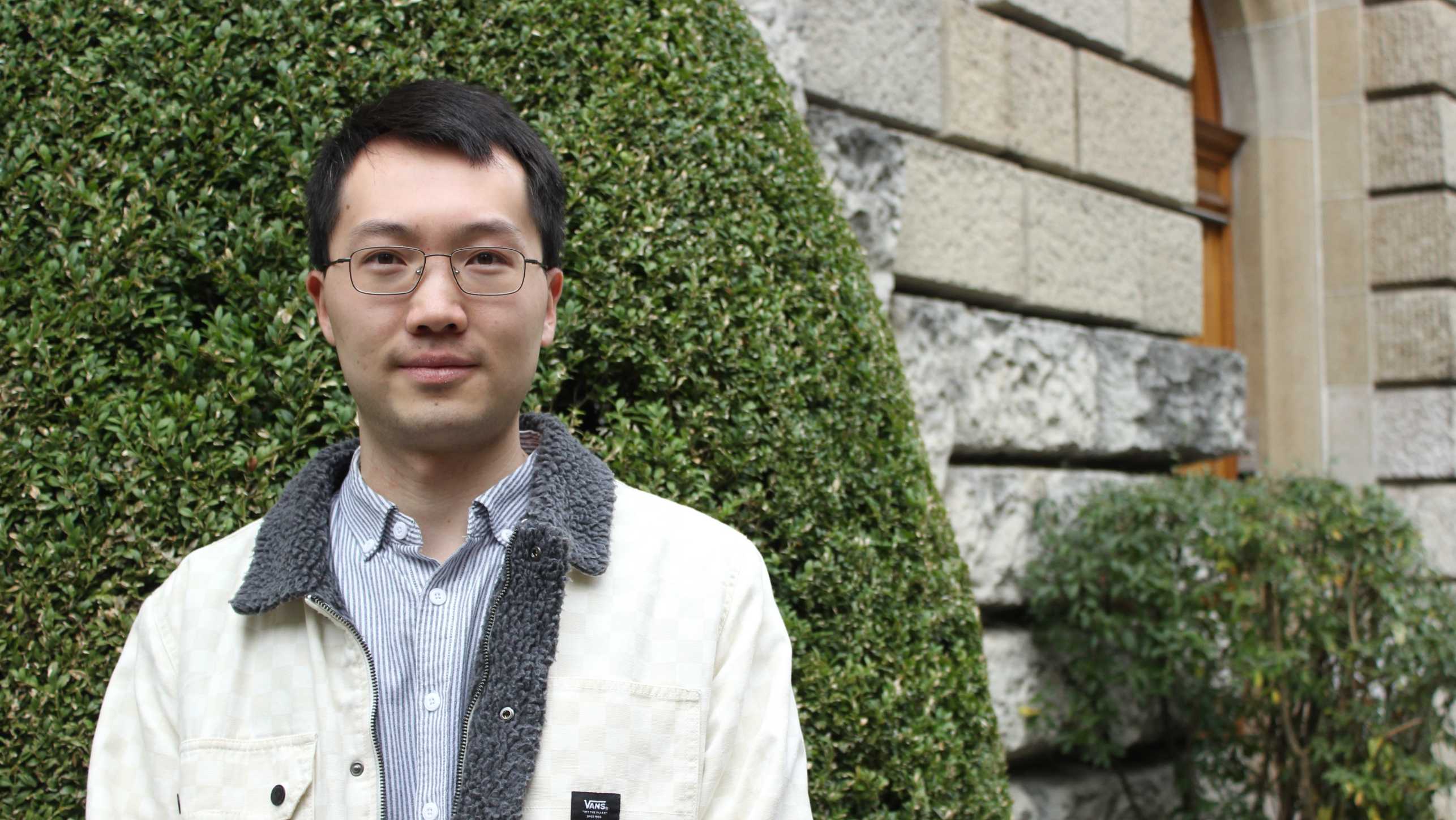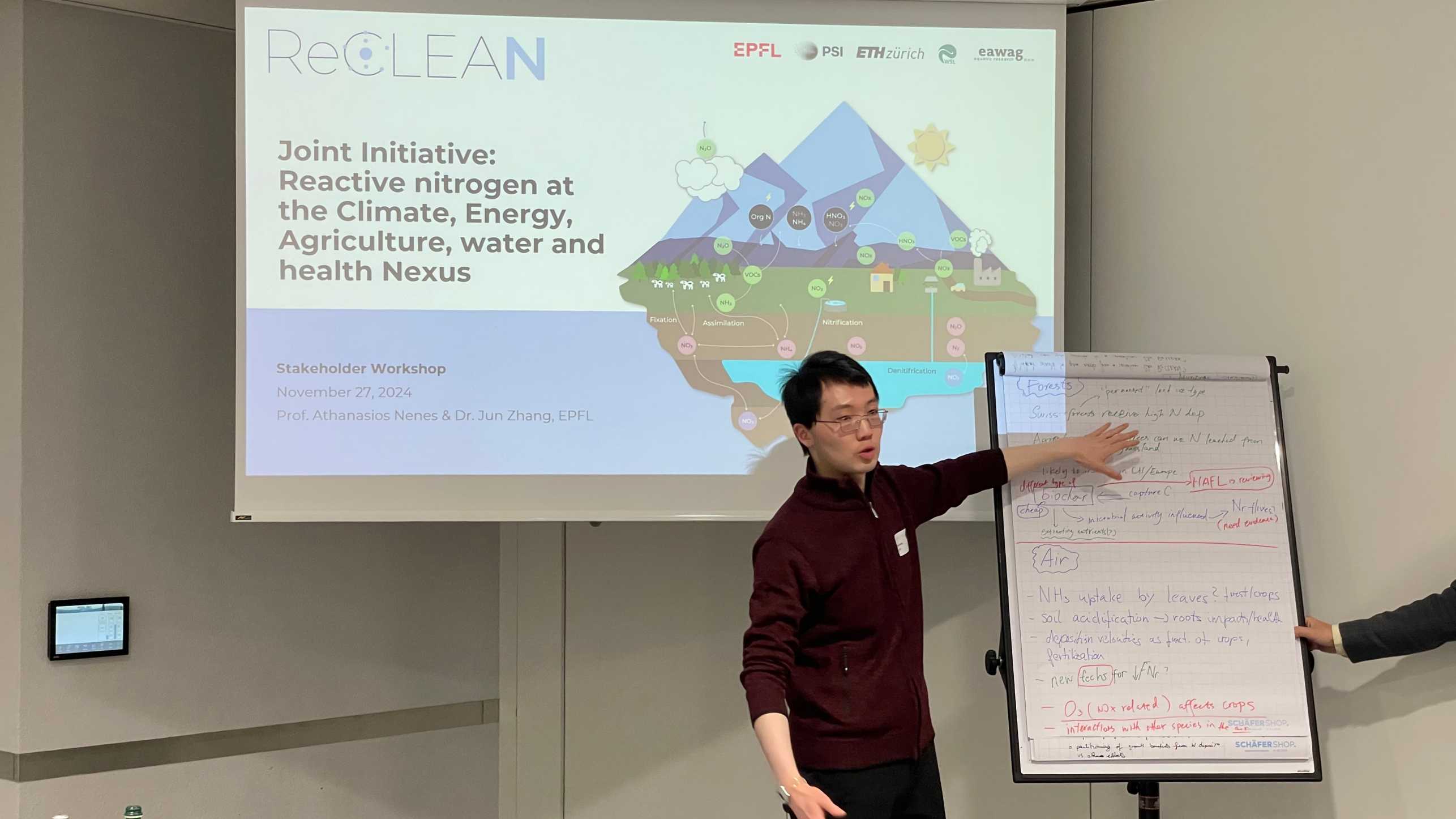Meet Jize Jiang

“Modelling gives me hope that we will be able to understand complex environmental mechanisms in the future. To achieve this, collaboration in research remains important.”
Let’s meet Jize Jiang, postdoctoral researcher in the SAE group. Jize is from China and graduated in Environmental Geoscience at the University of Edinburgh. After developing a model for ammonia emission from global agriculture during his PhD, he is now working in the ReCLEAN project with the goal of providing a national estimate of nitrous oxide emissions from agricultural and non-agricultural lands in Switzerland.
What do you find exciting about environmental modelling and what are the related challenges?
“I have always been curious to know more about the planet Earth. I think that modelling helps to improve our understanding of it, even though insufficient measurements represent a substantial challenge. As a modeler, I find it important to understand the methods behind the collection and measurements of the data we use.”
Did you travel a lot for work?
“I experienced some field work in China, and I found the UK landscape fascinating. I also have a good memory of my trip to Jamaica during my studies. One of our tasks was to collect marine samples to analyse salinity, nutrients and temperature. After that, we explored a mosquito forest where a funny thing happened to me. I realized that I had bought for the trip a big bottle of bug killer instead of mosquito repellent.”
How is it like to work in a collaborative project between different research groups?
“It is important to share knowledge, resources and expertise between research groups, basically to offer support and learn from each other. From these types of projects, you learn to communicate with very different people and to always practice dignity and respect. Time management is fundamental in these contexts as well as taking some time to work by yourself to reset and redirect your goals.”
What are your plans for the future?
“I would like to stay in academia and keep exploring problems and mysteries lying behind the nitrogen cycle. Society and the environment benefit strongly from the research in this field, so it is important to keep working on it to find solutions to urgent environmental problems. At the same time, the academic environment can be demanding, the job search can be challenging, and sometimes it is difficult to get the maximum reward both for the research itself and for personal development. Thus, we need to make the best possible use of the limited time we have.”
If you want to know more about Jize’s research, visit the external page project website.
You can contact him via e-mail for more questions:
